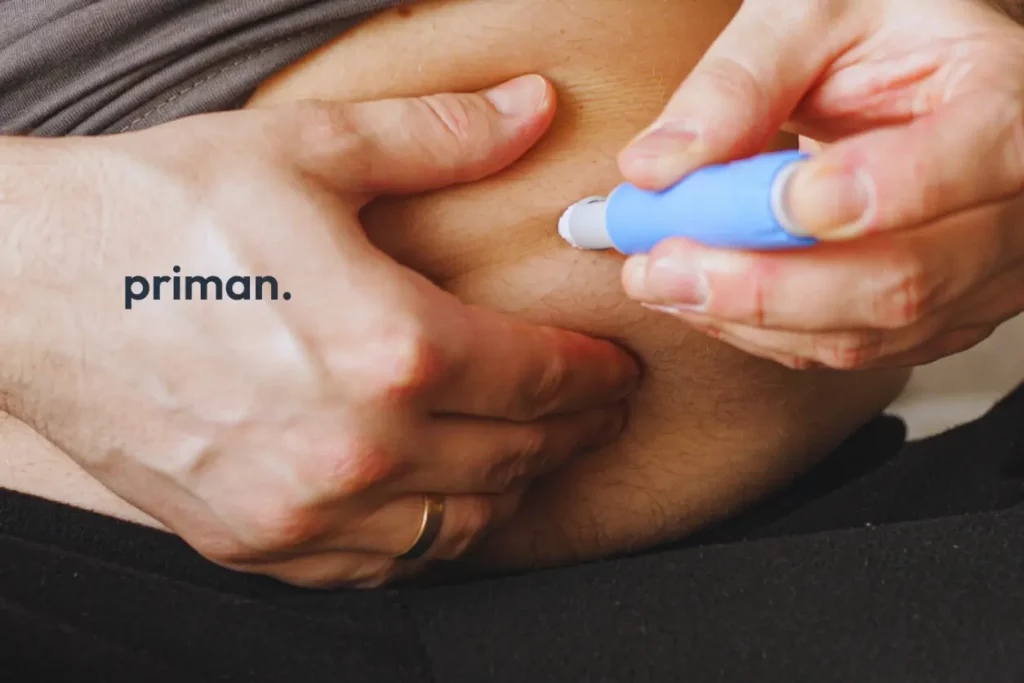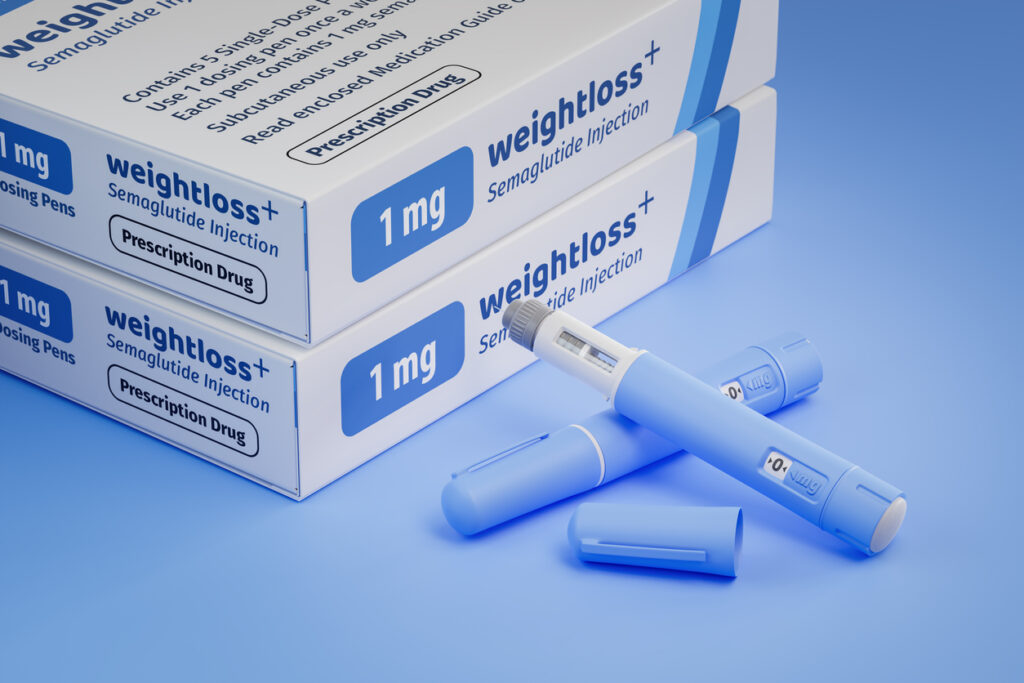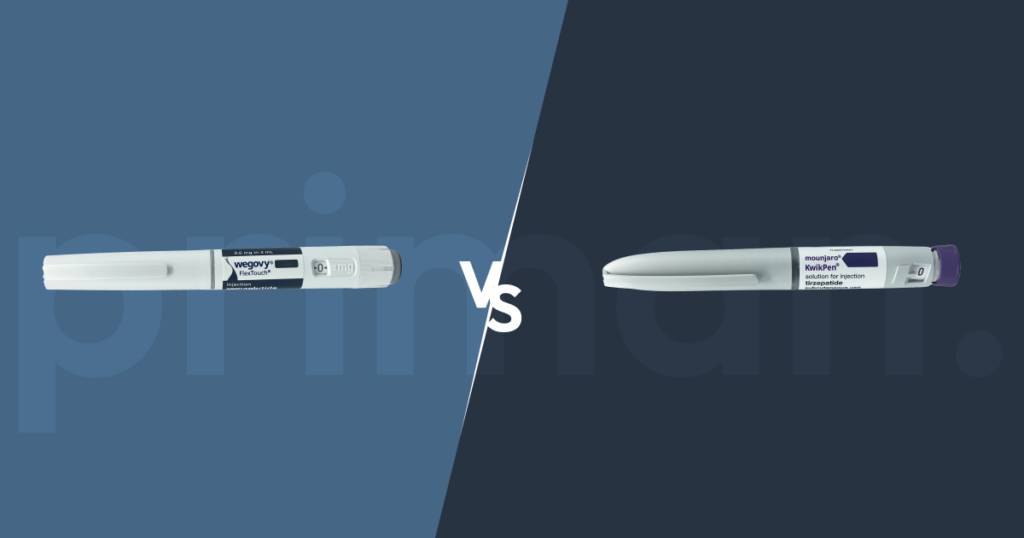Ever feel like you’re constantly tired, even after a night’s sleep? You’re not alone, fellas.
Many British men struggle with sleep apnea, a condition where your breathing repeatedly stops and starts during sleep.
But here’s the thing: Sleep apnea and weight gain are like two mates at the pub, egging each other on.
Let’s delve into this two-way street and how it affects you.
Are British men suffering from sleep apnea?
Simply put, sleep apnea occurs when your breathing regularly stops and begins while you sleep. It impairs the quality of your sleep and might leave you exhausted and unable to function during the day. It’s a growing condition, with rates skyrocketing in recent decades.
It is estimated that almost a billion adults aged 30-69 worldwide suffer from sleep apnea. The actual figure is likely to be higher because people of all ages can and do develop sleep apnea. And, while an increasing number of individuals are being diagnosed with sleep apnea, many more may be having it every night but are unaware of it. In some cases, the fatigue and lack of energy people experience throughout the day might be due to untreated sleep apnea.
What is sleep apnea?
Sleep apnea is a serious sleep disorder in which your breathing repeatedly stops and starts while sleeping. There are three major types:
- Obstructive sleep apnea (OSA): is the most frequent type, where relaxed throat muscles restrict the airway.
- Central sleep apnea (CSA): occurs when the brain fails to transmit instructions to the muscles to breathe.
- Mixed or complex sleep apnea: a combination of both obstructive and central sleep apnea.
What are the symptoms of sleep apnea?
Sleep apnea symptoms include:
Irregular breathing, gasping, snorting, or choking, loud snoring, and frequent awakenings.
Snoring is more common in OSA than in CSA, but it can happen with any form of sleep apnea. You may feel as if you are choking because of a blockage in your throat. In CSA, this is not the case, but you might still wake up gasping for air.
Sleep apnea can also cause symptoms that interfere with your daily activities and well-being. Because it interrupts your sleep, you might not feel your best when you wake up.
Symptoms of daytime sleep apnea may include difficulties concentrating, mood changes, headaches, fatigue, and falling asleep unintentionally (e.g. at work), having trouble falling or staying asleep (insomnia).
Daytime symptoms are frequently what alert a person with sleep apnea to the problem, and because they don’t occur at night, you may not associate them with a sleep condition. In fact, the American Academy of Sleep Medicine (AASM) reports that 80-90% of people with OSA go undiagnosed.
If you feel you have sleep apnea, discuss with your healthcare professional. Early diagnosis and treatment are critical for avoiding serious health risks.
The main causes of OSA
The prevalence of OSA has risen significantly in recent decades, and it is thought to be strongly connected to the obesity issue. According to the findings of one well-respected sleep research, 41% of persons with OSA are overweight or obese. They also identified that 58% of those in the moderate-to-severe group were overweight or obese.
Although increased weight is regarded to be the most common cause of OSA, it is not the only one. Several causes of OSA have been identified, including:
- being overweight (BMI 25-29.9) or obese (BMI 30 or above).
- symptoms of OSA include larger necks in both genders,
- down syndrome,
- large tonsils and adenoids in children and young adults,
- endocrine disorders like hypothyroidism and acromegaly,
- smoking, alcohol or sedative use,
- increasing age,
- postmenopausal status, and
- nasal congestion at night due to allergies or nasal structure abnormalities.
Measuring the severity of sleep apnea
The severity of sleep apnea is quantified using a scale known as the Apnea-Hypopnea Index. This scale counts the number of breathing pauses, whether fully (apnea) or partial (hypopnea), that occur during sleeping.
It’s a numerical scale from 0-30 and is calculated by dividing how many events occurred while you were sleeping by how many hours you slept for. There are four categories of increasing severity:
- Normal: less than five events
- Mild: at least five but less than 15 events (5-14)
- Moderate: at least 15 but less than 30 events (15-29)
- Severe: 30 or more events.
The two-way street between sleep apnea and weight
The link between sleep apnea and weight gain is a complex one, a two-way street that can be frustrating for those struggling with both. While the exact reasons behind this connection are still being unravelled, understanding these pathways is key to tackling both issues and achieving better health.
OSA not only impairs important physiological functions, but it also promotes to weight gain via several pathways:
- Hormonal disruption: Sleep apnea impairs the synthesis of crucial hormones that regulate appetite and fullness. Ghrelin, the “hunger hormone,” rises, while leptin, the “satiety hormone,” drops. This imbalance causes increased hunger and desires, particularly for calorie-dense meals, which promotes weight gain.
- Reduced metabolism: Deep sleep regulates metabolism and helps you burn calories. Sleep apnea dramatically disturbs deep sleep, lowering metabolic rate and increasing the risk of weight gain.
- Fatigue and limited exercise: Chronic tiredness and daytime drowsiness caused by sleep apnea can drastically lower energy levels and motivation for physical exercise. This decrease in physical activity adds to weight gain while exacerbating the current sleep apnea issue.
- Insulin resistance: Sleep apnea can cause insulin resistance, which is when the body’s cells become less receptive to insulin, resulting in high blood sugar levels. This can lead to weight gain and an increased risk of various health issues.
But Wait, There’s More! Weight Gain Can Also Worsen Sleep Apnea: Find out next!
It also suggests that OSA patients, in particular, are more likely to gain weight than persons with the same BMI and health condition but no sleep apnea. This is demonstrated by one study, which found that patients with OSA gained much more weight (about 16 pounds) in the year leading to their OSA diagnosis than BMI-matched individuals without OSA.
How does weight gain worsen sleep apnea?
Here’s what you need to know about:
Gaining weight narrows your airway. Imagine your airway as a highway. Excess weight acts like a traffic jam, squeezing the airway and making it harder to breathe, especially during sleep when your muscles relax. This narrowing can lead to the airway collapsing completely, causing sleep apnea.
Weight gain also weakens the muscles supporting your airway. Think of these muscles like security guards keeping the airway open. Extra weight puts a strain on them, making them less effective at their job. When these muscles get tired, the airway is more likely to collapse during sleep.
Not only your neck, but your belly can also play a role. Excess fat around your abdomen can push against your chest wall, reducing your lung volume. With less space for air to move, your upper airway becomes more susceptible to collapse during sleep, worsening sleep apnea.
The more you weigh, the higher your risk. Studies show that even a 10% weight gain can significantly increase your chances of developing sleep apnea. The heavier you are, the more stressed your airway and supporting muscles become.
It’s a two-way street. While weight gain is a major risk factor for sleep apnea, sleep apnea itself can also lead to weight gain.
Health Risks of Sleep Apnea and Excess Weight
Treatment options for sleep apnea
- Continuous Positive Airway Pressure (CPAP) is the gold standard for treating OSA. It produces air pressure through a mask to maintain the airway open during sleep, dramatically improving sleep quality and minimising apneas.
- Oral Appliances: Dental appliances can be used to keep the jaw forward and open the airway, providing an alternative to CPAP for certain people.
- Weight Loss: Even a small weight loss can greatly improve sleep apnea symptoms and lessen the need for further treatments.
- Lifestyle Modifications: Making healthy lifestyle adjustments, such as frequent exercise and a balanced diet, can encourage weight reduction and improve sleep quality, allowing you to manage both conditions more successfully.
How Weight Loss Can Help Sleep Apnea?
Remember the above discussion about obesity being a major risk factor for sleep apnea? It’s a two-way street! Just like excess weight worsens sleep apnea, losing weight can significantly improve your sleep and reduce your symptoms.
Weight Loss Makes a Difference:
- Clearer Airway: As you shed pounds, fatty tissue around your neck shrinks, creating more space for air to flow freely during sleep. This reduces airway obstruction, a hallmark of sleep apnea.
- Stronger Muscles: Weight loss can improve the tone of your throat muscles. Stronger muscles are less likely to collapse and block your airway during sleep, preventing apneas.
- Hormonal Harmony: Weight loss helps regulate hormones like leptin and ghrelin, which control your appetite and metabolism. Balanced hormones can lead to healthier eating habits and less weight gain, further reducing the burden on your airway.
Here’s the good news: even moderate weight loss can make a big difference. Studies show that losing just 5-10% of your body weight can significantly improve sleep apnea severity and sleep quality. In some cases, a 10% weight loss can reduce your Apnea-Hypopnea Index (AHI) score by 26%, taking you from moderate to mild sleep apnea.
Finding Your Weight Loss Path
There’s no one-size-fits-all approach to weight loss, but several methods can be effective for managing sleep apnea:
- Diet: It’s not just about calorie restriction. Avoiding alcohol, especially before bed, can be beneficial. Alcohol relaxes the throat muscles, worsening airway collapse, and can make it harder to wake from an apnea event.
- Exercise: Double win! Exercise promotes better sleep and helps you lose weight. By incorporating physical activity into your routine, you can improve your overall fitness, lose weight and fall asleep more easily at night.
- Therapy: Studies on the effectiveness of counselling for sleep apnea show mixed results. Some people may benefit from cognitive behavioural therapy (CBT) alongside diet and exercise changes.
- Medication: Weight loss medications, such as GLP-1 injections (Wegovy, Mounjaro or Saxenda) or tablets.
- Surgery: In severe cases, weight loss surgery might be considered.
The Takeaway:
Weight loss is a powerful approach in managing sleep apnea. By losing weight and adopting healthier lifestyle habits, you can improve your sleep quality, reduce your risk of complications, and breathe easier at night.
Talk to your healthcare professional about creating a healthy weight loss approach.
Priman: Lose weight, sleep better, feel like a champion. Get your personalised weight loss treatment today!
References
Research (2020) The Sleep Apnoea Trust. Available at: https://sleep-apnoea-trust.org/research/
Sleep apnoea (2022) nhs.uk. Available at: https://www.nhs.uk/conditions/sleep-apnoea/
Benjafield, A. V. et al. (2019) “Estimation of the global prevalence and burden of obstructive sleep apnoea: a literature-based analysis,” The Lancet. Respiratory medicine, 7(8), pp. 687–698. doi: 10.1016/s2213-2600(19)30198-5.
Kondamudi, N. P., Krata, L. and Wilt, A. S. (2023) Infant Apnea. StatPearls Publishing.
Santilli, M. et al. (2021) “Prevalence of obstructive sleep apnea syndrome: A single-center retrospective study,” International journal of environmental research and public health, 18(19), p. 10277. doi: 10.3390/ijerph181910277.
Nedeltcheva, A. V., Kilkus, J. M., Imperial, J., Schoeller, D. A., & Penev, P. D. (2010). Insufficient sleep undermines dietary efforts to reduce adiposity. Annals of internal medicine, 153(7), 435–441. http://annals.org/article.aspx?doi=10.7326/0003-4819-153-7-201010050-00006
Peppard, P. E., Young, T., Palta, M., Dempsey, J., & Skatrud, J. (2000). Longitudinal study of moderate weight change and sleep-disordered breathing. JAMA, 284(23), 3015–3021. http://jama.jamanetwork.com/article.aspx?doi=10.1001/jama.284.23.3015
Stelmach-Mardas, M. et al. (2021) “Body mass index reduction and selected cardiometabolic risk factors in obstructive sleep apnea: Meta-analysis,” Journal of clinical medicine, 10(7), p. 1485. doi: 10.3390/jcm10071485.









